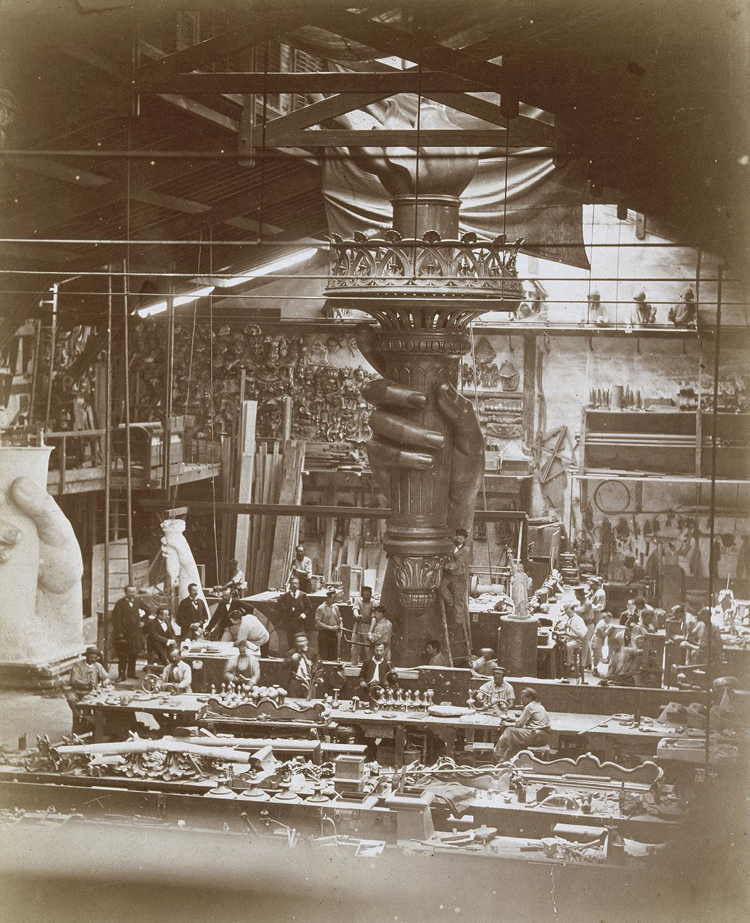
[Building the “beacon of liberty” (1876)]
Where now is “the beacon of liberty”?
The problem for a small, remote, and relatively insignificant country like Australia is to figure out what it can do to contribute to the broader, international liberty movement and where it fits in. One possibility is for it to become a “beacon of liberty” now that Hong Kong is in the process of losing that status as it is gradually swallowed up by the CCP, and given the fact that the government of Singapore has strongly authoritarian bent. On the authoritarian, anti-liberal side of Singapore see The Human Freedom Index 2021 (Cato, Fraser) which ranks it 2 for economic freedom and 88 for personal freedom, for a combined ranking of 48. 1.)) [See below for the relevant country pages of the Index.]
In the absence of Kong Kong and Singapore, imagine there being a truly liberal nation in the Asia-Pacific region which is
- independent of “entangling alliances”,
- highly productive and competitive in world markets,
- fully open to the free movement of goods, services, and people,
- and which is able to spread the ideas of liberty to the rest of the world.
Is Liberty a “western” notion?
Another problem which needs to be recognized is that for non-Western nations without an historical tradition of thinking about individualism, autonomy, natural rights, limited government, and the rule of law (among other things) there is an additional hurdle to be overcome in spreading the word about liberty in its many dimensions.2 Can a society be truly “free” only in the economic sense of the word, without it also needing to be free in the “political” sense. Milton Friedman for one said that the two were intimately connected.3 However, these concepts are often regarded as being a “western imposition” which does not reflect the needs and traditions of non-western cultures. How to overcome this perception and to express the benefits of liberty of all kinds (not just economic, but also political and social) in a form relevant to these cultures is a significant problem which needs to be addressed.
A third problem is that critics of CL argue that the economic success of countries like Japan, South Korea, Singapore, and perhaps now China, shows that politically directed economic development by an elite of trained expert technocratic managers and far-seeing political leaders, has shown that there is an alternative to the western example of free and autonomous individuals pursuing their own interests within a framework of free markets, private property, the rule of law, and limited government. To overcome this argument we will need more studies by historians and economists which show that :
- centralized technocratic and political management has not been as successful as claimed by its supporters and has resulted in many failures and distortions,4
- that Bastiat’s “what is unseen” argument still applies,5 namely that economic development would have been better and more comprehensive if it had taken place in a free market and perhaps taken a different direction which might have benefited ordinary people more than it has
- that it has produced societies dominated by very powerful and rich elites (crony capitalists or “crony communists”) who have benefited at the expense of ordinary consumers and taxpayers 6
- that Asians too have (or will soon have) aspirations for freedom of speech, political involvement, and other “western-style” individual freedoms, which will need to be satisfied. Studies of the beliefs and behaviour of the Asian diasporas in places like Australia, Canada, Britain, and the U.S. might shed some light on this.
The Human Freedom Index Rankings

The Freedom Index for Oceania:

For Australia:
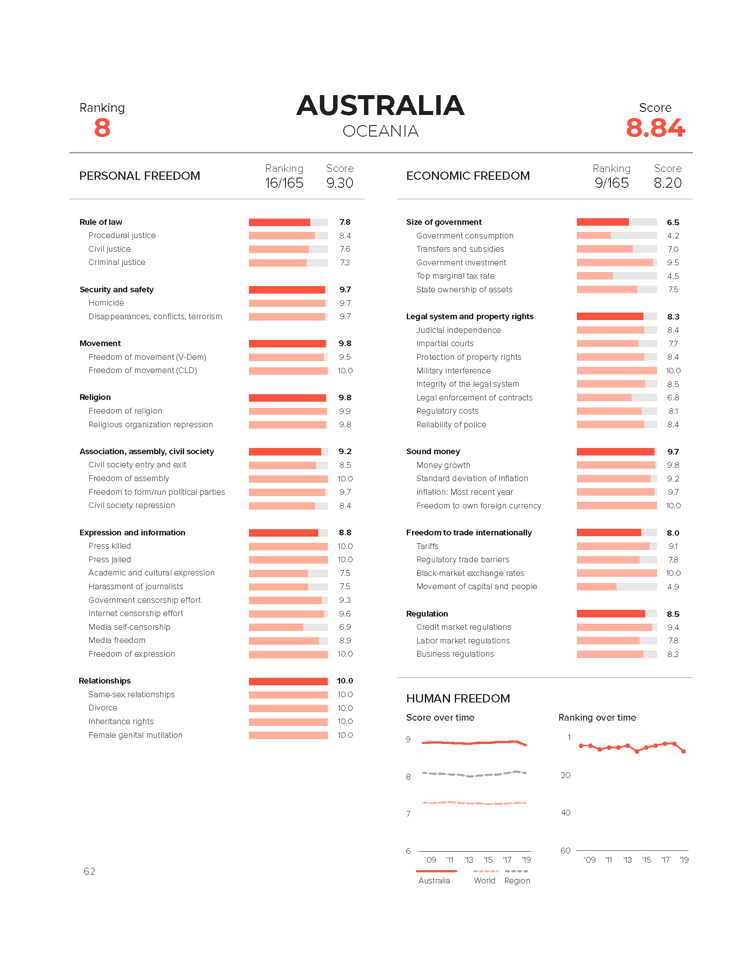
For New Zealand:
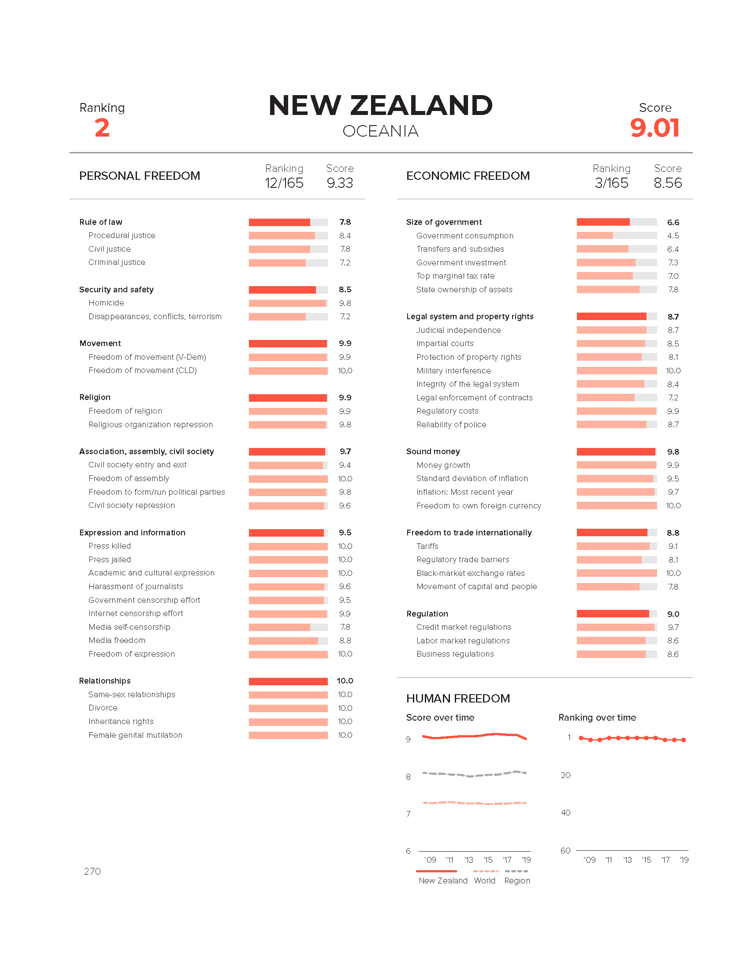
For Singapore
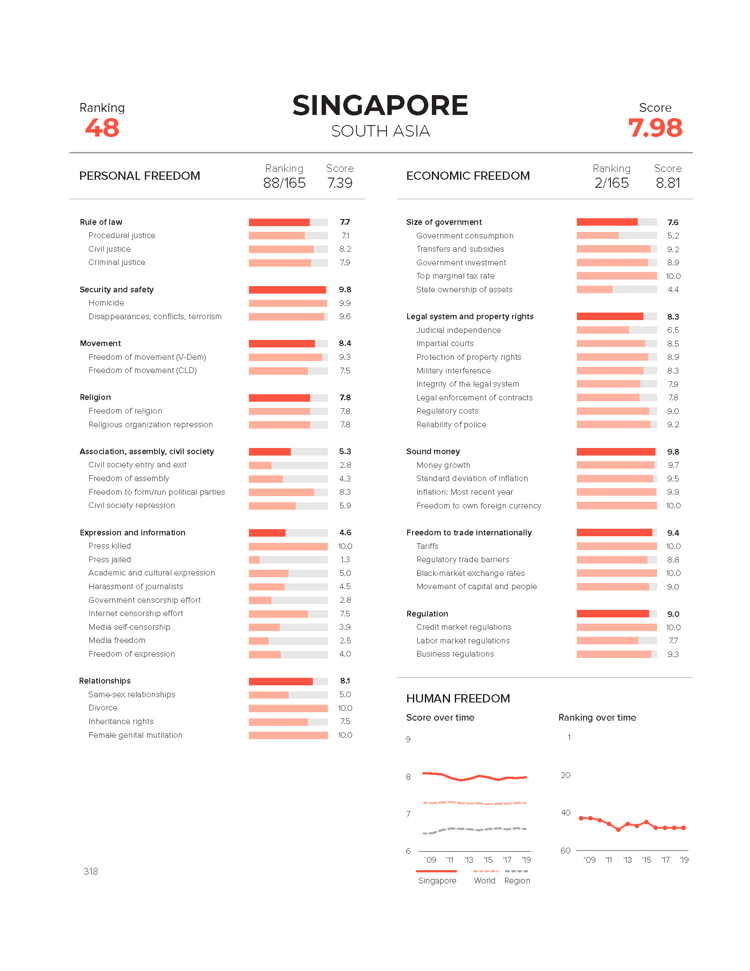
For Hong Kong:
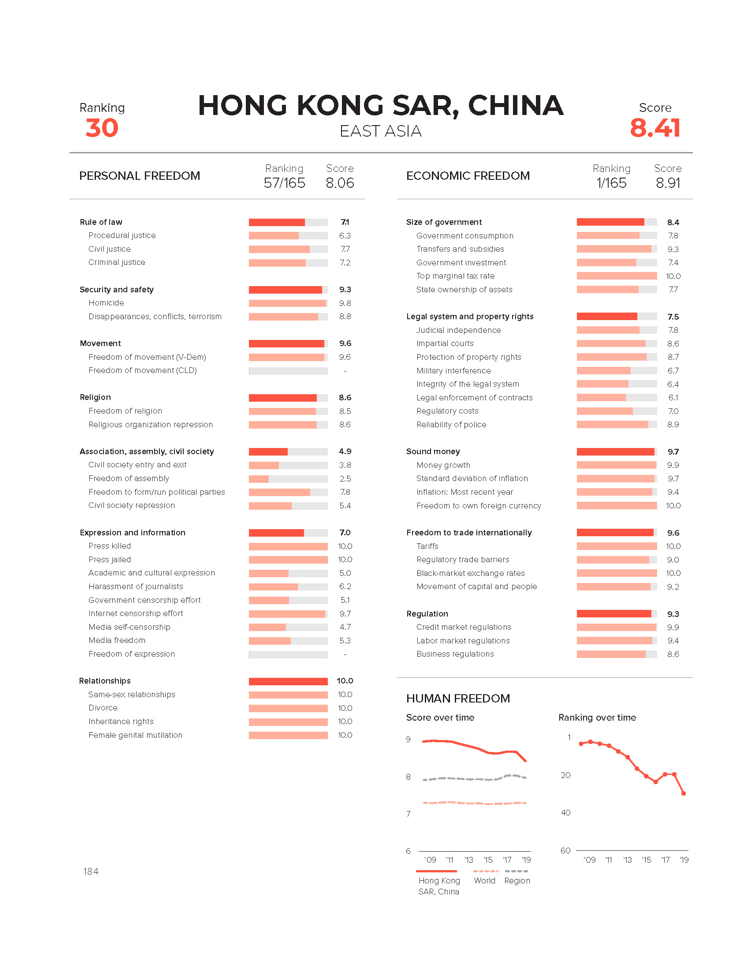
Endnotes
- The Human Freedom Index 2021. A Global Measurement of Personal, Civil, and Economic Freedom. Ian Vásquez, Fred McMahon, Ryan Murphy, and Guillermina Sutter Schneider (Cato Institute and Fraser Institute, 2021). Online – Human Freedom Index: 2021 | Cato Institute and PDF. Note NZ is no. 2, Australis is 8 (down 4), UK is 14 (down 3), and US is 15; Singapore is quite low because of its lack of political and social freedoms at 48 (economic freedom is 2, but personal freedom is 88 [↩]
- Ludwig von Mises for example thought that “The Idea of Liberty is Western” which was the title of an article he wrote in 1950 for American Affairs. [↩]
- See Milton Friedman, Chap. 1 “The Relation between Economic Freedom and Political Freedom” in Capitalism and Freedom (1962). [↩]
- See Levy, David M. and Peart, Sandra J., Escape from Democracy: The Role of Experts and the Public in Economic Policy (New York: Cambridge University Press, 2016); Roger Koppl, “The Rule of Experts” in The Oxford Handbook of Austrian Economics. Edited by Christopher J. Coyne and Peter Boettke (Oxford UP, 2015); Roger Koppl, Expert Failure (Cambridge UP, 2018). [↩]
- See Bastiat’s book Ce qu’on voit et ce qu’on ne voit past (What is Seen and what is not Seen) (1850) in Frédéric Bastiat, The Collected Works of Frédéric Bastiat. Vol. 3: Economic Sophisms and “What is Seen and What is Not Seen.” (2017). [↩]
- A similar phenomenon has emerged in the West as well which Randall Holcombe calls “political capitalism”. [↩]
